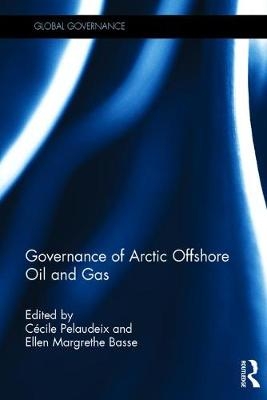
Governance of Arctic Offshore Oil and Gas
Routledge (Verlag)
978-1-4724-7150-5 (ISBN)
Global energy problems will remain a challenge in the coming decades. The impact of climate change and the melting of polar sea ice opening up access to offshore hydrocarbon resources in the Arctic Ocean, raises questions for both civil society and the scientific community over drilling opportunities in Arctic marine areas.
Disparities in approach to the governance of oil and gas extraction in the Arctic arise from fundamental differences in histories, cultures, domestic constraints and substantive values and attitudes in the Arctic coastal states and sub-states. Differing political systems, legal traditions and societal beliefs with regard to energy security and economic development, environmental protection, legitimacy of decision making, and the ownership and respect of the rights of indigenous people, all affect how governance systems of oil and gas extraction are designed.
Using a multidisciplinary approach and case studies from the USA, Norway, Russia, Canada, Greenland/Denmark and the EU, this book both examines the current governance of extraction and its effects and considers ways to enhance the efficiency of environmental management and public participation in this system.
Ellen Margrethe Basse is Professor of environmental law at the Department of Law, Aarhus University. She is a doctor habitation of environmental law and was awarded the jur.dr. (H.C.) at Uppsala University for her research education activities in this area. She is a former professor of procedural law and associate professor of administrative law. She was the Director of the Interdisciplinary Social Science Research Centre (1992-2001), and the Chairman and Secretary of Aarhus University’s Climate Panel (2008-2010). She has been a member of several research bodies, evaluation panels and think tanks in Denmark and other Nordic countries. She is the author of many books and articles on international, EU and national environmental, energy and climate law, public law, and legal theory. Cécile Pelaudeix is Associate Professor at the School of Culture and Society of Aarhus University and research associate at PACTE, Sciences Po Grenoble. She has been a member of the Scientific Committee of the "Chantier Arctique", CNRS (National Center for Scientific Research), Paris. Her research focuses on Arctic governance, the EU Arctic policy, Greenland politics and China’s foreign policy in the Arctic. She is the work package leader in a research project on the Arctic for the European Defence Agency.
Introduction: Between Diversity and Coexistence in The Arctic
PART I: Globalization and Supra-nationalism in the Arctic
Framing the Problem in Arctic Offshore Oil and Gas Exploitation
Sustainable Development in Arctic International Environmental Cooperation and the Governance of Hydrocarbon-Related Activities
The European Union’s Role As a Facilitator in the Development of Maritime Environmental Law in the Arctic – With Focus on Offshore Hydrocarbon Activities
Indigenous Rights in the Marine Arctic
PART II: National Perspectives on Offshore Regulations
Alaska and Offshore Hydrocarbon Extraction: A Legal and Socio-Economic Review
Governance of Offshore Hydrocarbon Activities in The Arctic and Energy Policies: A Comparative Approach between Norway, Canada and Greenland/Denmark
The Russian Offshore Oil and Gas Regime: When Tight Control Means Less Order
The Arctic Offshore Hydrocarbon Hiatus of 2015, Climate Change, and Integrated Management: An opportunity to revisit regulation around the Pole
PART III: State-Based Approach, Sub-States Entities and Indigenous peoples
Offshore Development and Inuit Rights in Inuit Nunangat
Securing the Coastal Sámi Culture and Livelihood
Indigenous Modes of Ownership: Reopening the Case for Communal Rights in Greenland
PART IV: Regulatory Instruments and Enforcement
Impact Benefit Agreements and Economic and Environmental Risk Management in the Arctic
Impact Benefit Agreements in Greenland
The Interplay Between Environmental Research, and Environmental Regulation of Offshore Oil and Gas Activities in Greenland
Conclusion: Towards an Integrated and Participatory Governance of the Arctic Marine Areas
| Erscheinungsdatum | 15.07.2017 |
|---|---|
| Reihe/Serie | Global Governance |
| Zusatzinfo | 1 Tables, black and white; 1 Line drawings, black and white; 2 Halftones, black and white; 3 Illustrations, black and white |
| Verlagsort | London |
| Sprache | englisch |
| Maße | 156 x 234 mm |
| Gewicht | 453 g |
| Themenwelt | Naturwissenschaften ► Biologie ► Ökologie / Naturschutz |
| Naturwissenschaften ► Geowissenschaften ► Geografie / Kartografie | |
| Sozialwissenschaften ► Politik / Verwaltung | |
| Technik ► Elektrotechnik / Energietechnik | |
| ISBN-10 | 1-4724-7150-4 / 1472471504 |
| ISBN-13 | 978-1-4724-7150-5 / 9781472471505 |
| Zustand | Neuware |
| Haben Sie eine Frage zum Produkt? |
aus dem Bereich


